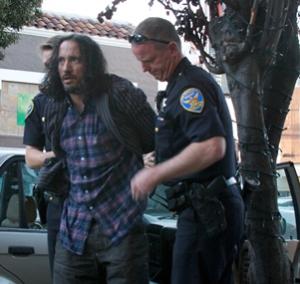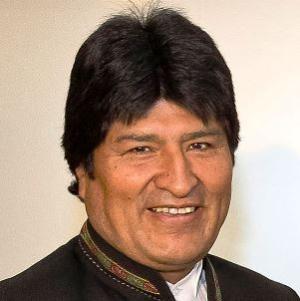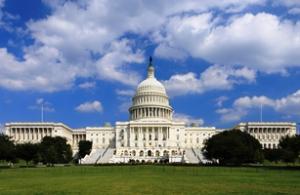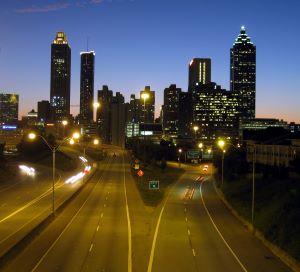We're looking at 2019 through the rearview mirror now, but before we turn our sights to 2020, it's worth taking a few moments to look back at the last year in international drug policy.
The 7th Circuit rules that drugs recovered during an illegal raid are still admissable as evidence under a little known legal doctrine elaborated by Antonin Scalia.
A pervy Florida cops heads to prison, a New Mexico narc is in trouble for sampling forbidden substances, a Virginia narc pays for outing snitches to drug traffickers, and more.
A bipartisan pair of senators file a pair of marijuana bills, a key Senate Republican is demanding changes in the House-passed SAFE Banking Act, and more.
South Dakota voters will get to decide on okaying medical marijuana next year, Chicago legal sales are set to begin January 1, New Zealand's government pays for a pill-testing study, and more.
No marijuana brews for Oregonians, Trinidad & Tobago legalizes possession and cultivation, Trump asserts the power to enforce federal drug laws in medical marijuana states, and more.
Portland, Oregon, sees a psychedelic decriminalization initiative begin signature gathering, and more.
Legal marijuana sales get underway in Illinois, the Italian Supreme Court gives the okay to personal marijuana cultivation, Colombia wants to resume aerial spraying of coca crops with herbicides, and more.
New York's governor vetoes a bill easing access to medication-assisted treatment for opioid addiction for Medicaid patients, but not for patients with private insurance; Illinois sold $3.2 million worth of weed on day one of legalization, and more.
Virginia's Democratic governor is ready to push for pot decriminalization as part of a broader criminal justice reform package, federal opioid funds will soon be available to address meth and cocaine as well, the Philippines' vice-president rips Duterte's bloody drug war, and more.
The MORE Act gets another push, there will be no decriminalization of marijuana in New Jersey during the lame duck session, a South Dakota marijuana legalization initiative qualifies for the ballot, and more.
The Atlanta Police are shutting down their dope squad to concentrate on violent crime, the Florida legislature and state attorney general try to block a marijuana legalization initiative, and more.
A search for a permanent new executive director is underway at the Drug Policy Alliance, Mississippians will vote on a medical marijuana initiative this year, New York's governor vows to legalize marijuana this year (again), and more.
Vermont lawmakers begin a push to tax and regulate marijuana sales, the Decriminalize Nature movement arrives in the nation's capital, Colombia's president and governors disagree about aerial eradication of coca crops, and more.
(See our Top Ten Domestic Drug Policy Stories of 2019 feature here.)
We're looking at 2019 through the rearview mirror now, but before we turn our sights to 2020, it's worth taking a few moments to look back at the last year in international drug policy. From marijuana law reform to the push for drug decriminalization, from the coca fields of Colombia to the poppy fields of Afghanistan, and from the killing fields of Mexico and the Philippines, there was a lot going on. Here are ten of the biggest international drug policy stories of 2019, in no particular order.

Medical marijuana was on the move in 2019 -- sort of -- at the UN's Vienna headquarters.
The wall of marijuana prohibition continued to crumble in 2019, albeit at an achingly slow pace.
A lot of the activity was in Europe. In March, Switzerland announced plans to let up to 5,000 people legally smoke marijuana in pilot studies aimed at shaping rules for recreational use of the drug.
In the Netherlands, the government finally moved in August to address the longstanding "backdoor problem," where marijuana is allowed to be sold but there is no legal source of supply. It announced a pilot program to begin in 2021 in which cannabis cafes in ten Dutch cities will be supplied with legally grown marijuana. The big cities of Amsterdam and Rotterdam opted out because of worries that problems could arise if they all abandoned their illicit suppliers simultaneously.
In Denmark, the city council in Copenhagen, the country's capital and largest city, voted overwhelmingly in August to support a pilot program that would see marijuana sold legally across the city. The council has long pushed for this, but now there is a new left-wing government, so perhaps it will be allowed to happen.
Also in August, Luxembourg looked set to become the first European country to free the weed, as the government confirmed plans to legalize it, saying that residents 18 and over should be able to use and purchase it within two years. In December, though, the government said it will still be at least two years, citing "delays in working on policy related to the legislation."
And just at year's end, in Italy, the Supreme Court ruled that the small-scale personal cultivation of marijuana is legal, triggering calls for further legalization. The court declared that laws against growing drug crops should not apply to "small amounts grown domestically for the exclusive use of the grower."
And Israel decriminalized marijuana possession as of April 1. Possession of small amounts of marijuana in private homes is no longer to be treated as an offense, criminal or otherwise, while public possession will generate a fine of around $275, with that fine doubling for a second offense within five years. Only people who commit a third public possession offense within seven years will face the possibility of criminal prosecution.
In Australia, Canberra, the national capital, became the first city in the country to legalize marijuana personal use and cultivation. The law legalizes up to 50 grams and two plants per person, but not sales. It is set to go into effect on January 31, 2020, but conflicts with national marijuana prohibition, so stay tuned. And in nearby New Zealand, the governing coalition announced in May it would hold a binding referendum on marijuana legalization during the 2020 elections. In December, it unveiled a government web site with information on the proposed legalization bill that will be put before the voters.
In the Western hemisphere, Uruguay and Canada have led the way on marijuana legalization, but Mexico looks set to be the next over the line. After legislators there failed to pass legalization by a Supreme Court-imposed deadline at the end of October, the court gave them an extension until June 1 to get it done. Lawmakers got very close late in 2019 but were unable to close the deal because of disputes among competing business interests. There was action in Colombia, too, where an opposition senator filed a legalization bill in August. That bill is reportedly backed by former President Juan Manuel Santos, but it is the votes of the Liberal Party that will determine whether it advances.
There was progress in the Caribbean, too. In Trinidad & Tobago, non-commercial marijuana legalization went into effect in December, allowing people to possess up to 30 grams and grow four plants. A regulated marijuana marketplace is likely coming in 2020. In St. Kitts and Nevis,the government in midsummer filed a bill to legalize marijuana for "medicinal and scientific, religious, and recreational purposes." It remains pending at year's end. A similar effort is underway in the British Virgin Islands, where a draft bill to legalize marijuana is being reviewed by government officials.
2. Medical Marijuana on the Move
Acceptance of medical marijuana on the global stage continued to increase in 2019, and the year got off to a good start in January when the Israeli Cabinet gave final approval to exports, making it the third country, after Canada and the Netherlands, to do so. The following month, the European Parliament approved a resolution to advance medical marijuana in countries that form the European Union.
Meanwhile, Thailand formally embraced medical marijuana when King Maha Vajirlongkorn signed a decree legalizing it and kratom; and later in the year, a member of the country's ruling coalition government filed a bill that would allow people to grow up to six plants for personal medicinal use. And in the Philippines, a bill to legalize medical marijuana was reintroduced in 2019. Similar bills have been filed each year since 2014. Last year, the bill passed the lower house but failed to get out of the Senate.
In Latin America, Peru joined the ranks of medical marijuana countries more than a year after it became law when the government finally approved regulations to cover its production and use. In Mexico, the Supreme Court in August gave the federal health ministry until January to issue regulations on medical marijuana.
In the Caribbean, in August, Barbados introduced legislation to establish the legal foundation for a local medical marijuana industry, joining Jamaica, St. Vincent and the Grenadines as well as Antigua and Barbuda in approving marijuana cultivation.
Medical marijuana was sort of on the move at the United Nations too. In late January, the World Health Organization recommended the removal of marijuana from Schedule IV of the global drug treaties, the most restrictive category, along with other related reclassifications of substances involving marijuana's components or synthetic substitutes for them. This would stop short of the kind of full stamp of approval WHO gives to many drugs -- marijuana would not become an "essential medicine" -- but it would eliminate a designation that some governments might find constraining in terms of allowing medical use in their own countries. Most importantly, it would be widely seen as recognition by the UN of marijuana as a medicine (though international law does not ban medical use of marijuana now).
The Commission on Narcotic Drugs -- the subset of UN member states that sets drug policy for the UN -- was supposed to vote on the WHO recommendations during its March meeting, but that didn't happen because the recommendations were delayed at the end of 2018, leaving several countries to complain that they needed more time to study them.

"You can't arrest your way out of a drug problem." So why not try decriminalization? (Creative Commons)
Beyond marijuana legalization, the decriminalization of drug use and possession is probably the most significant means within current political striking range for reducing the criminal justice harms of drug prohibition. Portugal, which decriminalized in 2001, remains a shining example to emulate.
In Canada, in May, the House of Commons Health Committee called on the federal government to study Portugal's drug decriminalization and see how the model could be "positively applied in Canada." The following month, British Columbia nurses called urgently for decriminalization, but in September, as he campaigned for reelection, Prime Minister Justin Trudeau said decriminalization was not on the agenda, even though the national Liberal Party caucus in 2018 passed a resolution calling to "reclassify low-level drug possession and consumption as administrative violations" rather than criminal ones. The conversation is advancing north of the border.
The conversation is also advancing in the United Kingdom, where the Scottish National Party formally endorsed drug decriminalization, as did the British Parliament's Health and Social Care Committee and Parliament's Scottish Affairs Committee. Britain's leading medical journal, The Lancet, came out hard for decriminalization in a special drugs issue released in October. The following month, Britain's largest drug treatment providers called for radical drug policy reforms, including decrim. But the ruling Conservative Party with Boris Johnson freshly installed as prime minister, remains opposed -- for now.
It's not just Canada and Great Britain, either. In Mexico, President Andres Manuel Lopez Obrador in May submitted a decriminalization plan to Congress, while in Malaysia, the government announced in June that it planned to drop criminal penalties for drug use and possession. The following month, in Colombia, the legislative opposition and the center-right block filed a bill to decriminalize there.
In Australia, the New South Wales Special Commission of Inquiry into Ice (methamphetamine) released recommendations in October calling for harm reduction approaches and decriminalization. In the United States, an effort to put a decrim initiative on the 2020 Oregon ballot got underway in the fall, and a national movement to decriminalize psychedelics got underway.
The push to decriminalize is also working its way through the global drug control bureaucracy, as was evident in March when a key UN organization called for global drug decriminalization. The UN Chief Executives Board (CEB), representing 31 UN agencies including the Office on Drugs and Crime, adopted a position calling on member states to adopt science-based, health-oriented approaches to drug policy -- namely decriminalization. The policy shift -- or rather, recognition of what the policies of UN agencies on this already were -- came in January but was not publicly announced.
4. Harm Reduction and Human Rights
Along with decriminalization, harm reduction and concern about human rights gained momentum in 2019.
In March, a coalition of UN Member States, UN entities and leading human rights experts meeting at the Commission on Narcotic Drugs in Vienna launched a landmark set of international legal standards around drug policy: the International Guidelines on Human Rights and Drug Policy. The following month, more than 300 NGOs called for harm reduction and drug decriminalization at the 26th International Harm Reduction Conference in Lisbon.
In the United Kingdom, both the British Labour Party and Parliament's Scottish Affairs Committee called for safe injection sites, while in Ireland, a Dublin safe injection site was moving closer to reality at year's end.
In Australia, the New South Wales Special Commission of Inquiry into Ice (methamphetamine) recommended harm reduction approaches in October, and the New Zealand government in December announced a pilot program to examine pill-testing at festivals, marking the first time such a study will have been done in the country.
5. Mexico Ravaged by Prohibition-Related Violence for Another Year
In January, Mexican authorities reported that the number of murders in 2018 hit an all-time high with more than 33,000, many of them directly linked to violence among competing drug cartels and between cartels and the state. A lot happened between then and now, but at the end of 2019, this year's death toll was at just under 32,000. At least it didn't get worse, but those numbers are still horrifying, and the year-old administration of President Andres Manuel Lopez Obrador hasn't been able to turn the corner yet. It's not for lack of trying or willingness to embrace new ideas.
In February, the Mexican Senate approved a plan for a new National Guard to fight crime and drug trafficking, but only after amending it to ensure that the new security force is headed by civilians, not the military, which has been linked to numerous human rights violations.
In May, Lopez Obrador called for an end to Plan Merida, under which the US provided security assistance to fight the drug war, with the president saying he wants the US to end the anti-drug Merida Initiative and instead invest in economic development in southern Mexico and Central America. Saying the plan "hasn't worked," Lopez Obrador added that, "We don't want cooperation on the use of force, we want cooperation on economic development. We don't want the so-called Merida Initiative."
In June, the murder rate topped 2,000 a month for this first time, a toll linked to the rise of the Jalisco New Generation cartel, which is seeking to supplant the Sinaloa cartel formerly headed by Joaquin "El Chapo" Guzman, who is now serving a sentence in the US. In north-central Guanajuato state, the JNGC has been duking it out with yet another faction, the Santa Rose de Lima cartel, leaving more than 3,200 dead in that state alone by year's end.
By August, a Catholic bishop issued a call for dialogue between the government and armed groups, including drug cartels. That was Bishop Salvador Rangel Mendoza of Chilpancingo-Chilapa (Guerrero state), a key opium-growing region. Responding to the government's announcement that it was in talks with so-called community police groups and self-defense militias, but not the cartels, the bishop chided the government, saying, "To get peace you have to dialogue, even with Satan, with whomever it might be to get peace."
As cartel clashes raged through the summer and fall, the government tentatively explored alternatives to continuing drug war. In September, Lopez Obrador said he was considering a referendum on drug legalization, and in October, the ruling MORENA Party's leader in the Chamber of Deputies, Mario Delgado Carrillo, proposed legalizing all drugs to combat cartel violence. His comments were in response to one of the more brazen cartel actions in 2019, when Sinaloa Cartel gunmen forced the release of El Chapo's son after he was captured by security forces in the cartel heartland city of Culiacan and they turned the city into a war zone until Ovidio Guzman was freed, greatly embarrassing the government.
That same month, in another brazen attack, gun men from the JNGC ambushed police in Michoacan, killing more than a dozen and leaving signed placards on their bodies warning police not to support rival crime groups, such as Los Viagras.
In yet another act of gruesome violence -- and one that caught the attention of Americans long bored with the violence south of the border -- in November, cartel gun men killed nine women and children with dual US-Mexico citizenship, prompting President Trump to suggest he could use the US military to "wage war" against the cartels. Lopez Obrador declined that offer [Ed: wisely, for them and for us].
6. Coca, Cocaine and Chaos in Colombia
According to both the UN and the US, Colombia accounted for around 70% of global cocaine production in 2017, when the country produced 1,275 tons of cocaine, the most ever. In 2018, production declined by a tiny percentage, but remained near record high levels. There are no figures available yet for 2019, but there is no reason to suspect much has changed.
The high levels of coca cultivation and cocaine production have made a return to aerial spraying of coca crops a key goal of the rightist government of President Ivan Duque, who in March asked the Constitutional Court to ease restrictions on spraying, which President Juan Manuel Santos banned after the World Health Organization classified glyphosate as a likely carcinogen. That position won the support of US Secretary of State Pompeo in June, when, ignoring the global criticism of glyphosate and any other strategies for reducing cultivation, he called spraying "an important tool they need" to reduce coca production.
But in July, the Constitutional Court upheld the ban, although it also said spraying could resume if the government met certain conditions. At the end of December, the government announced plans to resume spraying, publishing a draft law that would allow fumigation flights under supervision of the national police. The proposal also calls for the creation of an independent agency that would oversee complaints related to aerial spraying including any potential impacts on rural communities.
Meanwhile three years after a peace deal between former President Santos and the leftist guerrillas of the FARC was signed, violence and chaos in the countryside are increasing. In March, coca farmers clashed with police in Cordoba, saying they were returning to coca after two years of waiting for economic and security assistance that never arrived. In April, a UN report found massacres on the increase, reflecting new criminal dynamics in key areas of the country.
In June, the government reported a jump in murders, driven largely by battles for control over coca-growing areas that had previously been controlled by the leftist the FARC, leaving FARC dissidents, other guerrilla groups, and criminal drug trafficking groups fighting over who will control the fields. And in August, a new report from Human Rights Watch found that renewed fighting over control of the cocaine trade in the Catatumbo region had forced some 40,000 people to flee their homes. Human Rights Watch accused the Colombian government of "not meeting its obligations" to protect civilians in the area.
And speaking of the FARC, they're back. In June, a military intelligence report said as many as a third of FARC fighters had picked up their guns again. They were joining dissident FARC groups operating in coca-growing regions. Disarmed FARC rebels were supposed to have been reintegrated into society, but that has been stymied by violence and discrimination. At least 139 former FARC members have been killed since disarming.
A couple of month later, FARC dissidents made it official. In August, dissident FARC leaders announced they were rejoining the path of armed struggle. Three years after an historic peace agreement between the leftist guerrillas of the FARC and the Colombian state, the dissidents said that the rightist government of President Ivan Duque had betrayed the peace accord. Led Ivan Marquez (Luciano Marin), they said they were ready for a "new stage of fightingm," citing the murders of more than a hundred former FARC members and labor activists, as well as the government's failure to provide sustainable development assistance to areas formerly under their control. "The state has not fulfilled its most important obligation, which is to guarantee the life of its citizens and especially avoid assassinations for political reasons," said Marquez. The number of dissidents affiliated with Marquez is estimated at around 2,000-3,000. The civil war with the FARC that began in 1964 left more than 220,000 people dead.
President Duque also faces challenges to his hardline approach to drug policy in both the courts and the congress. The Constitutional Court threw out his ban on public pot smoking and drinking, meaning police can no longer confiscate drugs considered to be for personal consumption, and people are again allowed to smoke marijuana and drink beer in public. But it's unclear whether Duque will abide by the ruling.
And in June, the legislative opposition and a center-right bloc filed a package of four bills that seek to decriminalize drug use and ban glyphosate, the chemical the government wants to use to fumigate coca. What opposition lawmakers want is to curb drug abuse by strengthening health care and to fight drug trafficking via voluntary crop substitution and rural development.

Bolivia's coca grower president, Evo Morales, was forced from office late in 2019. (Creative Commons)
Long-time Bolivian leader Evo Morales, a former coca growers union leader who won the presidency in 2005 and was reelected twice was forced from office and fled the country after extended protests in the wake of disputed elections in November. Morales resigned after he lost the support of the military, which called on him to quit after weeks of sometimes violent protests.
As president, Morales broke with US drug policy in the region and legalized the production of coca in the country. He also lifted millions of Bolivians out of poverty, through heavy investments in public works projects. He began to lose support after ignoring a referendum calling on him not to run again, which had followed a series of controversies and scandals. Chaos escalated after an unexplained 24-hour delay in vote-counting before he was declared the victor. The country is now ruled by an interim hard right regime, but elections are supposed to happen in the next three months.
8. Philippines Drug War Faces International Pushback
The international community turned up the heat on Filipino President Rodrigo Duterte and his bloody drug war in 2019, but Duterte was undeterred.
In 2018, the International Criminal Court (ICC) opened a preliminary examination into human rights abuses in the drug war, and that March, Duterte responded by quitting the ICC. But the ICC said its preliminary investigation into Filipino drug war abuses would continue. In December 2019 the ICC Chief Prosecutor Fatou Bensouda announced that the examination was in the "very late stages," and that a decision on whether to open an investigation would be made during 2020.
In April, human rights advocates and harm reductionists rallied against the Philippine drug war at the 26th Harm Reduction International Conference in Porto, Portugal. "The Philippine government's barbaric campaign against the drug trade is severely harming the health and security of its communities. The evidence that punitive drug policies don't work is irrefutable. People around the world have sent a clear message to the government today -- stop the killings and invest in the health and human rights of your people," Naomi Burke-Shyne, Harm Reduction International executive director, said.
In June, the Philippines National Police put the drug war's official death toll at 6,600, up from just under 5,000 seven months earlier. Human rights groups put the toll much higher, some as high as 30,000, with killings divided between police and shadowy vigilante groups.
That same month, UN experts called for a human rights probe of the Philippines drug war. A group of 11 United Nations human rights experts called or the UN's Human Rights Council to start an independent probe into rights violations in the Philippines, including illegal killings in President Rodrigo Duterte's bloody crackdown on drugs. The call gained momentum when a group of two dozen countries called for a UN investigation of drug war killings. A draft resolution submitted by Iceland and supported mainly by West European countries urged the government to halt extrajudicial executions and called on the UN Human Rights Council to address the crisis. And a major report from Amnesty International on drug war atrocities added fuel to the fire.
In July, the full UN Human Rights Council voted to begin an investigation into the mass killings. The Duterte government responded by refusing to grant the UN access to the country to investigate the killings and other human rights abuses. And Foreign Minister Teodoro Locsin called the UN experts "bastards."
In November, representatives from 51 countries called for the Philippines to "STOP THE KILLINGS" at the Drug Policy Alliance's International Drug Policy Reform Conference in St. Louis. "With the world watching, we felt compelled to use our platform to draw attention to the horrendous crimes taking place every day in the Philippines, with the full-throated support of that country's president," said Maria McFarland Sanchez-Moreno, executive director of the Drug Policy Alliance. "The Philippines is a stark example of how the drug war can so easily serve as an excuse for targeting vulnerable people, and harassing critics, and punishing opponents."
Also in November, Duterte engaged in some political flim-flam when he named strong drug war critic Vice President Leni Robredo as drug czar, then fired her less than three weeks later. Duterte accused Robredo of embarrassing the country by drawing international attention to his bloody war on drugs. But Robredo vowed to carry on the fight. "When I took this job, I asked you, are you ready for me? My question to you now is what are you afraid of? Are you afraid of what I might discover? Are you afraid of what the public might discover?," Robredo said at a news conference. "If they think I will stop here, then they don't know me, I am just starting," Robredo said.
"They cannot remove my determination to stop the killings and hold those responsible to account and win the fight against illegal drugs."
Meanwhile, another prominent political figure and drug war critic, Senator Leila de Lima remains behind bars, where she has been since arrested on bogus drug charges in February 2017. But she got some support from the US Congress late this year. In two separate moves in December, the Senate approved a Free Leila resolution (Senate Resolution 42) and approved a State Department spending bill that includes a provision barring entry "to foreign government officials about whom the Secretary has credible information have been involved in the wrongful imprisonment of Senator Leila de Lima."
The Duterte government has responded in typical fashion: It has now denied entry to three US senators, Ed Markey (D-MA), who authored the de Lima resolution, and Dick Durbin (D-IL) and Patrick Leahy (D-VT).
9. Sri Lanka and the Death Penalty for Drugs
Under the baleful influence of Philippines President Rodrigo Duterte, now former Sri Lankan President Maithripala Sirisena early in the year announced plans to end a 43-year moratorium on the death penalty so drug offenders could be executed, kicking off his campaign with an advertisement announcing job vacancies for executioners. In April, Sirisena announced the first executions would be coming soon as he presided over the burning of seized cocaine.
"To curb the illegal drug menace, it is necessary to implement the death penalty," he said. "The death penalty will be implemented in the coming days. The list has been prepared and we have decided on the date too."
But with the country in shock after the Easter Islamic terror attacks that left more than 200 people dead, Sirisena had other issues on his mind -- although in July, Sirisena falsely blamed drug gangs for the attacks, saying they were designed to discredit his anti-drug drive.
Sirisena's blood lust has so far been thwarted by the courts. In June, the Supreme Court delayed the execution of four people set to be hanged in October for drug offenses.
In October, as Sirisena's term was running out, his plans to make the executions his last act of state was again thwarted, with the Supreme Court again staying the executions until March 20, 2020. Now it will be up to newly elected President Gotabaya Rajapaska to decide whether to continue Sirsena's aberration.
10. The Extent of the US's Drug War Fiasco in Afghanistan Becomes Achingly Apparent
In late October, the Special Inspector General for Afghanistan Reconstruction (SIGAR) issued its latest report on the seemingly endless US occupation of Afghanistan, and its analysis of American anti-opium efforts was particularly devastating. SIGAR found that although we've spent nearly $9 billion trying to suppress the opium poppy, Afghanistan remained far and away the world's largest opium producer throughout the US occupation.
The country produced a record high nine tons of opium in 2017, and although drought reduced last year's crop, SIGAR noted that "it remained at the second-highest level since the United Nations Office on Drugs and Crime (UNODC) began monitoring it in 1994."
When it comes to suppressing illicit drug crops, there are three main approaches: eradication, interdiction and alternative development. According to the new SIGAR report, all three have proven ineffectual in Afghanistan. Interdiction activities -- drug busts -- have "minimal impact on the country's opium cultivation and production," SIGAR found, while eradication efforts "have had minimal impact on curbing opium-poppy cultivation." Alternative development was funded at low levels, and SIGAR found it "ineffectual at curbing opium cultivation."
Whew, that's pretty bad, but it gets worse. This month, the Washington Post published The Afghanistan Papers: A Secret History of the War, an extensive piece of investigative reporting that showed US officials consistently lied about making progress in the war even though they knew they weren't. The papers contain a section on opium, "Overwhelmed by Opium," that makes a thoroughly depressing read as it documents the myriad ways US anti-drug policy imploded. "Of all the failures in Afghanistan, the war on drugs has been perhaps the most feckless," the Post noted. That's saying something.
back to top
Criminal Court & Legal Affair Investigative Journalist Clarence Walker can be reached at [email protected].
The Fourth Amendment should have protected suspected Indianapolis methamphetamine dealer Paul Huskisson when DEA agents without a search warrant and without any exigent circumstances, such as fear of imminent danger or injury to officers, flight of the suspect, or destruction of evidence, raided Huskisson's home, discovered pounds of meth, and arrested him for it.

4th amendment.jpg
Under the Fourth Amendment's
exclusionary ule, when such evidence is unlawfully gathered the evidence cannot be used by the government in criminal cases.
But in a stunning blow to the Fourth Amendment protections against unreasonable search and seizure, that same unlawful seized evidence was indeed used in court against him, and Huskisson now sits in federal prison serving a 20-year sentence in FCI Lexington Kentucky.
In a 2019 decision, a three-judge panel of the 7th US Circuit Court of Appeals in Chicago; two of the justices, appointed by Clinton, including one appointed by Donald Trump, invoked a rarely used legal argument known as independent source doctrine to get around the Fourth Amendment violation, creating a floodgate of legal implications that has defense attorneys and legal scholars concerned.
WSNC 90.5 radio host of 'The Public Morality Show,' Byron Williams, condemned the decision in Huskisson's case in a scathing article published in the Winston-Salem Journal.
"Do we want to become a nation where obtaining a warrant before entering someone's home is optional?"
"The ends cannot justify the means," Williams said.
Here's how we got here:
The Bust
According to court documents and case testimony, the raid on Paul Huskisson had its genesis in the February 5, 2016 arrest by DEA agents of one Anthony Hardy on assorted meth charges, including conspiracy. Desperate to cut a deal, Hardy confessed his role in a dope smuggling scheme, even leading DEA agents to a cache of drugs and guns. Hardy implicated two other men, one of whom was Huskisson, who was previously unknown to the DEA.
And Hardy had plenty to say about Huskisson. He told DEA agents that he had scored substantial amounts of meth from him at least six times in the previous five months for $8,000 a pound, that he had purchased meth both at Huskisson's house and at a business owned by one of Huskisson's family member called 'No Limit' LLC, and that Huskisson was expected to receive a shipment of "10 to 12 pounds" the following day.
Hardy then took his snitching to the next level by volunteering to do a controlled buy for the DEA. DEA Special Agent Michael Cline prompted Hardy to call Huskisson on a recorded phone call to set up a buy to ensure Huskisson would sell dope to him, and Huskisson agreed to sell "10 to 12 pounds." After several more recorded calls, the pair agreed to meet at night on February 6, at Huskisson's place.
With undercover DEA agents already in place near Huskisson's house, Agent Cline tailed Hardy's car as he drove to 612 Laclede Street, where Huskisson lived, arriving 5:30 or 5:45 p.m. Hardy went into the house, and the assembled DEA agents waited. Half an hour later, Cline spotted a car pull into Huskisson's driveway and watched two men (later identifed as Jezzar Terraz-Zamarron and Fred Aragon) exit the visible vehicle carrying a cooler and enter the house.
Ten minutes later, a nervous Anthony Hardy came out the door and gave a prearranged signal to DEA Agent Cline to indicate he'd seen the meth. On that signal, DEA agents armed with high-powered weapons stormed the home, forcing the men inside onto the floor. Meanwhile Cline faked arresting Hardy to disguise Hardy's role as an informant. While milling around in Huskisson's home like characters readying for the next act, DEA agents and Indiana State Police investigators observed in the kitchen in plain sight an open cooler with 'ten saran-wrapped packages of meth.
All three men were arrested.
Paul Huskisson was subsequently indicted for possession with the intent to distribute 500 grams or more of methamphetamine in violation of the federal statute 21 U.S.C. 841(a).
When those DEA agents entered Huskisson's home and found the meth they had no search warrant whatsoever that allowed them to legally be there. They didn't bother to get one "until later," Cline testified at trial.
An Effort to Have the Evidence Thrown Out
Before going to trial, Huskisson's attorney filed a motion to suppress the drug evidence, arguing the drugs were found only after the DEA entry team entered Huskisson's house without a search warrant and without any exigent circumstances -- a clear violation of the Fourth Amendment's requirement for lawful searches. He also argued that DEA agents had included that tainted evidence, that fruit of the poisonous tree, into the affidavit for the search warrant that they obtained after the fact from a judge, "an hour or so later."
DEA agent Michael Cline was unable to testify at the motion hearing, so Indiana State Police investigator Noel Kinney substituted for Cline. Pertaining to the warrant obtained after agents rushed into the house, Kinney testified inconsistently regarding the ex post facto warrant, contradicting himself badly about the intent of the search and other government evidence.
Under questioning by defense attorney John L. Tompkins, Kinney first testified the task force's original plan was to apply for a warrant even if Huskisson refused consent to search, and no matter whether law enforcement saw evidence of drug activities in the house.
"Depending on the conversation with Mr. Huskisson, and, if he granted consent to search, we would continue the search of the residence," Kinney testified.
"What would've happened if Mr. Huskisson hadn't given consent," defense attorney Tompkins, asked.
"If he didn't give consent, we would've secured the residence and obtained a search warrant," Kinney said.
This testimony strongly suggests that DEA agents intended to enter the house and search for drugs without a warrant.
Belatedly realizing the incriminating implications of his testimony, Kinney then offered another alternative, claiming the plan was to apply for a warrant only if the DEA found meth in Huskisson's home -- and if Huskisson had refused consent to search.
At this point, Huskisson's attorney seized the moment to pounce on Kinney.
"So, if you didn't get consent you was going to start the process of obtaining a warrant?" Tompkins asked incredulous.

Judge Jane Magnus Stinson
"Yes," Kinney replied.
"So, no part of the plan was to obtain a warrant prior to entry into Huskisson's residence?" Thompson asked, again.
"That's correct, yes," the investigators' replied.
Despite the testimony about the warrantless search, US District Court Judge
Jane Magnus-Stinson ruled against throwing out the evidence against Huskisson, holding that independent source doctrine in essence trumped the Fourth Amendment.
On Appeal
Based in part on the evidence developed through the warrantless search, Huskisson was convicted and sentenced to 20 years in federal prison in 2017. Both men arrested with Huskisson on February 6, 2016, were also convicted and sent to prison. Huskisson's lawyers immediately appealed his conviction.
Filing a counter appeal, government prosecutors argued that the issuance of the warrant after the illegal entry of Huskisson's home by (DEA Agents) was based on an independent source for the meth evidence, thus making independent source doctrine applicable. Independent source doctrine in criminal cases creates an exception to the Fourth Amendment's exclusionary rule.
Independent search doctrine and the exception to the exclusionary rule was created in a 1988 US Supreme Court case, Murray v. United States (487 U.S. 533), with the opinion authored by arch-conservative jurist Justice Antonin Scalia. In that case, police in Boston had probable cause to stop two vehicles carrying marijuana as they exited a warehouse. Police then forced entry into the warehouse without a warrant and saw several wrapped bales that they suspected were drugs.
After seeing the bales, the officers left the warehouse and got a warrant based on their suspicion that more drugs were stored in the building. But in the affidavit for that search warrant, the police never mentioned that they had already entered the warehouse without a warrant and saw only stacked bales.
Still, Scalia ruled for the police, holding that the Fourth Amendment doesn't require the exclusion of evidence found during a warrantless illegal search if that evidence is also found during a later search with a valid search warrant.
Another case, this one on probable cause for searches, also came into play as appeals court judges pondered the issues before them in Huskisson's case. In 2010, judges of that same 7th US Circuit Court of Appeals held in a case involving drugs stored in an apartment, United States v. Etchins that's even though police illegally entered the apartment without a warrant and without the consent of the resident and remained in the apartment until a warrant was issued hours later, that "because the officers' search relied on a later-arriving warrant based on information sufficiently unrelated to the initial entry, the evidence discovered in Etchin's apartment was untainted by the officers' illegal behavior. "We therefore conclude that the district court properly denied the defendants' motions to suppress and, finding no error in the sentences imposed, we affirm."
Even as it denied Etchins' appeal, the appeals court conceded that "we do not doubt that the officers' warrantless entry violated the Fourth Amendment, but probable cause existed to search Etchins' apartment when officers unlawfully entered the first time. Therefore, the evidence discovered in Etchins' apartment was untainted by the officers' illegal behavior."
Relying mostly on Murray, but also on Etchins, on June 5th 2019, the 7th Circuit found that although Drug Enforcement (DEA) agents should've obtained a search warrant prior to entering Huskisson's home to get the dope, yet the panel insisted the unlawful evidence was still admissible under independent source doctrine, and that prior probable cause had already been established, tilting their decision in favor of the police.
The 7th Circuit concluded that prior evidence of police informant Anthony Hardy's initial admissions to DEA agent Michael Cline about his drug-dealing history with Huskisson, including Hardy's nine phone calls to Huskisson to set up the meth deal including Hardy's pre-bust signal to Cline at the scene were sufficient for probable cause prior to the officers entering Huskisson's home.

Paul Huskisson, currently serving 20 years at FCI Lexington. (Facebook)
Another key point the justices took into consideration was Hardy's story of drugs he saw in Huskisson's house after Hardy arrived, which, taken together, justified the resort to independent source doctrine because the DEA had already established probable cause against Huskisson without a warrant in hand.
"Though the government should not profit from its bad behavior, neither should it be placed in a worse position than it would otherwise have occupied," the panel held.
These same judges weren't even swayed by the glaringly inconsistent statements made by the police sergeant who testified agents planned to search Huskisson's house without a warrant even if he refused to consent to a search. Rejecting
Huskisson's appeal, the justices affirmed his conviction on federal drug charges in Indianapolis as result of the DEA investigation.
In effect, the appeals court held that police had established probable cause that Huskisson was dealing drugs, so the illegal search was okay. But probable cause should only give law enforcement the ability to obtain a search warrant, not give the police automatic permission to enter someone's home without one.
Still, the panel was critical of the DEA. "We do not condone this illegal behavior by law enforcement; the better practice is to obtain a warrant before entering a home. Ordinarily, the evidence found here would be excluded. But, because the government had much other evidence of probable cause, and had already planned to apply for a warrant before the illegal entry; therefore, the evidence is admissible."
Troubling Precedents
Legal scholars and defense attorneys are troubled by the line of cases that resulted in allowing illegally seized evidence to be used in criminal prosecutions.
"There are so many examples of police taking advantage of loopholes in Supreme Court doctrines that it must be incentivizing police in some cases to conduct illegal searches where they would otherwise seek a warrant," Ryan W. Scott, professor at Indiana University Maurer School of Law in Bloomington, told the Chronicle.
Washington, DC-based criminal defense attorney and appellate expert Steve Leckar, explained how the problem is rooted in the 1988 Supreme Court decision in Murray.
"Here's the problem," Leckar told the Chronicle. "In Murray, the US Supreme Court said independent source doctrine can be used."
Professor Scott concurred in pointing to Murray.
"The Supreme Court's answer in Murray was that police ( like the agents in Huskisson's case) still should prefer to obtain a warrant up front because then the police wouldn't have to bear the additional burden of establishing that both the showing of probable cause and their decision to seek a warrant were totally independent of the evidence the police recovered," he said.
Attorney Leckar said the line of decisions is deeply concerning. "This ruling gives police a green light to enter homes unannounced without a warrant, with the risk of confronting armed citizens," he noted. "Decisions like this allow the police to bust into people's homes' willy-nilly with little fear of being held accountable in a civil lawsuit," Leckar added.
He also worries that as officers become more aware of how independent source doctrine can be used to get around the exclusionary rule, they may be incentivized to create a story filled with half-truths to create questionable probable cause in order to make a warrantless entry into a person's residence or place of business.
Leckar was also critical of the appeals court panels' reasoning. "The problem with this court's decision is the belief the police shouldn't be put in a worse position, but the fact of the matter is the officers identified no reason that prevented them from getting a warrant within a timely manner," he argued. "They said they were going to get a warrant, but that's easy to say. What evidence was there of that?"
"Why bother getting a warrant right away if you can just conduct the search illegally, confirm that you were right, and then get the evidence admitted anyway?" Professor Scott added. "To be clear, independent source doctrine affects only the admissibility of evidence; it doesn't mean the police are legally free to enter the homes of suspected drug dealers without a warrant," he explained.
Huskisson is appealing to the US Supreme Court. Its his last hope, but his prospects there are cloudy at best.
Journalist Clarence Walker Jr. wishes Drug War Chronicle readers and everyone a safe, wonderful, blessed Christmas and prosperous New Year in 2020.
Any comments? Reach Clarence Walker at: [email protected]
back to top
A pervy Florida cops heads to prison, a New Mexico narc is in trouble for sampling forbidden substances, a Virginia narc pays for outing snitches to drug traffickers, and more.
In Roswell, New Mexico,
a former Roswell narcotics officer was arrested December 19 after an investigation that began when detectives found a white powdery substance in his home and at a hotel where he stayed. Gerald Juarez eventually admitted to deputies that he had been using cocaine for about a month and had now been charged with cocaine possession and evidence tampering.
In Wilsonville, Oregon, a state women's prison guard was arrested December 23 for allegedly smuggling heroin, meth, and other drugs into the prison. Guard Richard Steven Alberts II, 31, was arrested by federal agents along with a co-defendant who was already in custody on separate charges. Both are charged with conspiring with one another and other, unnamed individuals to distribute controlled substances and distribution of heroin stemming from a federal investigation that is ongoing.
In Muscogee, Georgia, a state juvenile detention guard was arrested December 24 after an early morning raid at the detention center turned up drugs. Guard Darrion Tarver, 28, is accused of bringing enough marijuana into Muscogee Youth Development Campus to distribute it, although the particular charges he faces were not specified. He was fired following his arrest.
In Jackson, Georgia, a Monroe County sheriff's deputy was arrested last Friday in neighboring Butler County following an investigation by authorities there. Details of what went down are hard to come by, but Deputy Paul Nicholas Stewart is charged with possessing controlled substances with the intent to distribute and using a communication facility in the commission of a felony involving a controlled substance.
In Edgefield, South Carolina, a state prison guard was arrested last Friday for smuggling drugs and other contraband into the Trenton Correctional Institute. Guard Kembria Merriweather, 24, is accused of providing cell phones and methamphetamine to an inmate with whom she had developed an intimate relationship. She is charged with distribution of methamphetamine, providing contraband to an inmate and misconduct in office.
In Hampton, Virginia, a former Hampton narcotics officer pleaded guilty December 19 to working with local drug dealers while he was part of the Special Investigations Unit of the Hampton Police. Deangelo Freeman, 31, admitted providing information about a federal criminal investigation to one dealer even as he was on the team investigating him, including disclosing the identity of a snitch. He copped to conspiracy to distribute more than 500 grams of cocaine and is looking at a mandatory minimum five-year federal prison sentence.
In Fort Lauderdale, Florida, a former Miccosukee police officer was sentenced December 18 to 10 years in prison for forcing a teenage couple to strip and run naked through the Everglades after he busted them with alcohol and marijuana. Michael Martinez, 30, pulled the young couple over in 2016 after they ran a stop and told them follow him down an isolated road where he ordered them to take their clothes off and run, or go to jail. The teens testified they thought they had no choice but to follow his orders. He also tried to solicit sex from the teenage girl. He was found guilty of two counts each of extortion and unlawful compensation.
back to top
A bipartisan pair of senators file a pair of marijuana bills, a key Senate Republican is demanding changes to the House-passed SAFE Banking Act, and more.

Marijuana is getting more attention at the Capitol these days. (Creative Commons)
Senate Banking Committee Chair Wants Changes in SAFE Banking Act. Sen. Mike Crapo (R-ID), head of the Senate Banking Committee, said Wednesday he opposes the SAFE Banking Act in its present form. The act has passed the House and is now before the committee. Crapo said he wants some changes, including a two percent THC limit on products in order for businesses to qualify for access to the banking system, which would effectively deny access to all sectors of the industry except hemp and CBD products. Crapo also floated denying banking access to companies selling high-potency vaping devices or products, such as edibles, that may appeal to children.
Senators Gardner and Warren File Marijuana Bills for Immigrants and Veterans. Democratic presidential contender Sen. Elizabeth Warren and Colorado Republican Sen. Cory Gardner have teamed up to file a pair of bills aimed at protecting immigrants and veterans who work in the marijuana industry. One bill would adjust current immigration policy to clarify that working in the industry would not be grounds for denying naturalization. The second bill would bar the Department of Veterans Affairs from denying housing loans to veterans who work in the industry.
Florida State Senator to File Legalization Bill. One of the Sunshine State's biggest legislative advocates for marijuana reform is ready to file a legalization bill in the coming session. Sen. Jeff Brandes (R-St. Petersburg) said he wants the legislature to legalize marijuana so the legislature could vet the proposal, instead of allowing legalization to occur via an initiative. He said he expected to have the bill filed within two weeks.
back to top
South Dakota voters will get to decide on okaying medical marijuana next year, Chicago legal sales are set to begin January 1, New Zealand's government pays for a pill-testing study, and more.

Chicago legal marijuana sales will begin January 1, despite concerns over diversity. (Creative Commons)
. As part of its crackdown on immigration, the Trump administration has proposed changing immigration policy to prevent people convicted of various misdemeanor and felony offenses from claiming asylum in the US. That would include any marijuana offense except for a first offense involving possession of less than 30 grams. The proposal is open to public comment through January 21.
New Mexico Poll Show Very Strong Support for Marijuana Legalization. A new poll from Change Research has support for marijuana legalization in the Land of Enchantment at a whopping 73%. This just a month ahead of a legislative special session where the governor is expected to back a legalization bill.
Vermont House Speaker Says Majority of Lawmakers Back Legalizing Marijuana Sales. House Speaker Mitzi Johnson (D) said Thursday that there is enough support in her chamber to pass a marijuana sales legalization bill this year. But Senate President Pro Tempore Tim Ashe (D) has said the legislation isn't a priority in his chamber. On Thursday, he said the Senate is in "wait and see mode" on what changes the House may make.
Chicago City Council Rejects Delay; Legal Marijuana Sales Will Begin January 1. At a contentious meeting Wednesday night, the city council rejected a bid to delay marijuana sales until July 1. The move came a day after a council committee approved the delay, citing complaints that minorities were losing out on ownership of city marijuana businesses. Mayor Lori Lightfoot (D) opposed the delay, saying diversity could be addressed without delaying the sales rollout.
Medical Marijuana
South Dakota Medical Marijuana Initiative Qualifies for November 2020 Ballot. For the third time, state voters will have the opportunity to legalize medical marijuana via the ballot box. Secretary of State Steve Barnett (R) announced Thursday that a medical marijuana initiative, Initiated Measure 26, has qualified to appear on the November 2020 ballot. The measure is supported by New Approach South Dakota and the Marijuana Policy Project.
International
New Zealand Government Will Fund Pill-Testing Study. The New Zealand government has funded a study to research pill-testing at music festivals, marking the first time such a study will have been done in the country. Under current law, festival promoters can be charged for allowing recreational drug use at their events, but authorities have at times turned a blind eye to the harm reduction practice and the national police approve of the study. It will be conducted by a criminology team from the Victoria University of Wellington.
back to top
No marijuana brews for Oregonians, Trinidad & Tobago legalizes possession and cultivation, Trump asserts the power to enforce federal drug laws in medical marijuana states, and more.

View from old Fort George, Trinidad & Tobago, where marijuana has just been legalized. (Creative Commons)
Oregon Bans Marijuana-Infused Alcoholic Drinks. The Oregon Liquor Control Commission has ruled that as of January 1, beer and other alcoholic drinks may not contain either THC or CBD. An agency spokesman cited concerns raised by the US Food and Drug Administration about potential liver damage from CBD. "We've wanted to address the issue of CBD getting into alcohol and because there are a lot of unknown unknowns about the effect of taking CBDs," Mark Pettinger said Friday. "There's very little scientific evidence. People are using them for wellness, but how they interact with other substances, not a lot is known."
Medical Marijuana
Trump (Again) Says He Can Ignore Medical Marijuana Protections Passed by Congress. For the third time, President Trump has asserted the right to ignore a provision in a spending bill passed by Congress that protects state medical marijuana programs from federal interference. "Division B, section 531 of the Act provides that the Department of Justice may not use any funds made available under this Act to prevent implementation of medical marijuana laws by various States and territories," Trump wrote in a signing statement. "My Administration will treat this provision consistent with the President's constitutional responsibility to faithfully execute the laws of the United States." Although the statement signals that Trump believes he can enforce federal drug laws against medical marijuana programs, there is no sign so far that that he plans to do so.
Alabama Commission Votes to Recommend Medical Marijuana Legislation. The Alabama Medical Cannabis Study Commission voted Friday to recommend legislation that would legalize marijuana for persons with diagnosed medical conditions. The bill would allow for a full-fledged medical marijuana program complete with dispensaries. Medical marijuana products would have to be grown in-state. But the draft bill does not allow for smokable or edible medical marijuana, nor would it allow patients to grow their own. A medical marijuana bill passed the state Senate last year but died without a House floor vote.
International
Trinidad & Tobago Marijuana Legalization Now in Effect. President Paula-Mae Weekes has signed a bill legalizing the possession of up to 30 grams of marijuana and the cultivation of up to four plants by adult. The law went into effect Monday. The law does not allow for legal marijuana commerce, but a bill that would do so is now being considered by a joint select committee which will report to parliament in February.
back to top
Portland, Oregon, sees a psychedelic decriminalization initiative begin signature gathering, and more.

Decriminalize Nature movement logo
Portland, Oregon, Activists Begin Gathering Signatures for Psychedelics Decriminalization Measure. The activist group Decriminalize Nature Portland has begun the task of gathering some 38,000 valid voter signatures by July 6 to put a municipal initiative on the ballot to decriminalize a number of psychedelics, including magic mushrooms and ayahuasca. The measure would bar the use of city funds to enforce any laws against the personal use and cultivation of natural psychedelics.
International
Dublin Takes a Step Toward Opening a Safe Injection Site. What could be Ireland's first safe injection site has moved a step closer to reality as a Dublin planning appeals tribunal has overruled city council planners and approved a facility on the city's inner south side. The NGO Merchants Quay Ireland had moved to set up the first such site in the country after a 2017 law allowed drug users to be exempt from drug possession charges at a designated safe injection site, but Dublin city planners had blocked the move, citing NIMBY concerns from local residents and businesses.
back to top
Legal marijuana sales get underway in Illinois, the Italian Supreme Court gives the okay to personal marijuana cultivation, Colombia wants to resume aerial spraying of coca crops with herbicides, and more.

People lined up by the hundreds in Chicago on New Year's Day to buy state-legal marijuana. (Creative Commons)
Florida Legalization Initiative Campaign Sues Over Early Deadline. The Make It Legal Florida marijuana legalization initiative campaign filed a lawsuit Tuesday charging that the state's new law regarding initiatives violates their rights by imposing a "stealth deadline" that effectively shortens the signature gathering period by a month. The campaign is seeking another month to submit petition signatures. The campaign has until February 1 to come up with 766,000 valid voter signatures, but says the new law creates a "stealth deadline" of January 2 to submit signatures to county supervisors for verification.
Illinois Governor Pardons 11,000 Marijuana Offenders Just Ahead of Legalization. Gov. JB Pritzker (D) on Tuesday issued more than 11,000 pardons to people with low-level marijuana possession convictions. The move came one day ahead of the commencement of legal marijuana sales in the state.
Illinois Marijuana Legalization, Sales Now in Effect. The first legal marijuana sales in the state began at 6:00am New Year's Day, with hundreds of people lined up at shops in Chicago and its suburbs. That makes Illinois the 11th state to legalize marijuana, and the first to also legalize sales through the legislative process as opposed to via an initiative.
Oklahoma Activists File Revised 2020 Marijuana Legalization Measure to Protect Medical Program. The activists behind a marijuana legalization initiative filed in December have withdrawn it and replaced it with a new initiative, State Question 808, that contains revised language aimed at protecting the state's existing medical marijuana program. The new initiative specifies that a 15% excise tax on sales would not apply to medical marijuana and says only existing medical marijuana dispensaries would be eligible for recreational licenses for the first two years after implementation.
Virginia Prosecutor Announces His Office Will Not Pursue Marijuana Possession Cases. Incoming Fairfax County Commonwealth's Attorney Steve Descano used his first day on the job Thursday to announce that his office will not prosecute low-level marijuana possession cases. But the local judiciary is not cooperating: One judge has already rejected Descano's guidance and denied a motion to dismiss one such case, saying each case needs to be reviewed individually.
Vaping
FDA Announces Ban on Flavored Vaping Cartridges. The US Food and Drug Administration on Thursday issued a policy prioritizing enforcement against certain unauthorized flavored e-cigarette products that appeal to kids, including fruit and mint flavors. Under this policy, companies that do not cease manufacture, distribution and sale of unauthorized flavored cartridge-based e-cigarettes (other than tobacco or menthol) within 30 days risk FDA enforcement actions. The only vaping cartridges that will be allowed are those with tobacco and menthol flavors.
International
Colombia Proposes Resumption of Aerial Spraying of Coca Fields. The Ministry of Justice on Monday published a draft law that would allow for the aerial spraying of herbicides on coca fields. The previous government ended such spraying four years ago, citing health concerns. The new proposal also calls for the creation of an independent agency that would oversee complaints related to aerial spraying including any potential impacts on rural communities.
Italian Supreme Court Rules Growing a Little Marijuana at Home Not a Crime. The Supreme Court ruled on December 27 that growing small amounts of marijuana for personal use is not a crime. The court held that "at home, small-scale cultivation activities are to be considered excluded from the application of the penal code." It's unclear just what qualifies as "small-scale cultivation." The case before the court involved two plants.
back to top
New York's governor vetoes a bill easing access to medication-assisted treatment for opioid addiction for Medicaid patients, but not for patients with private insurance; Illinois sold $3.2 million worth of marijuana on day one of legalization, and more.

Truck drivers will face a doubled chance of undergoing a random drug test this year. (Creative Commons)
Illinois Sold $3.2 Million Worth of Weed on Day One of Legalization. On the first day of legal marijuana sales, retailers racked up 77,000 transactions totaling $3.2 million. Among those first day customers was Lieutenant Governor Juliana Stratton, who was spotted buying gummies at a dispensary, which generated applause from other customers.
Texas Marijuana Prosecutions Drop by Half Since Hemp Legalization. Since lawmakers legalized hemp last year, the inability of police officers, drug dogs, and field drug tests to differentiate between non-psychoactive hemp and marijuana has resulted in a 50% decline in marijuana possession prosecutions. Some agencies that still pursue charges are having to spend significantly more money on private labs that can tell the difference.
Drug Testing
Truck Driver Random Drug Testing Rate Set to Double This Year. The Federal Motor Carrier Safety Administration announced on December 26 that trucking companies will have to double the random drug testing of their drivers, from 25% of drivers each year to 50%. That will cost the industry an estimated $50 million to $70 million each year. The increase in testing rates was triggered by the amount of positive drug tests passing the 1% mark, which in turn was likely triggered by the Department of Transportation adding four semisynthetic opioids -- oxycodone, oxymorphone, hydrocodone and hydromorphone -- to its federal drug-testing program in 2018, as well as the spread of marijuana legalization.
Drug Treatment
New York Governor Vetoes Bill to Ease Medication-Assisted Treatment for Opioids for Medicaid Patients. Gov. Andrew Cuomo (D) has outraged activists by vetoing a bill intended to make it easier for poor residents on Medicaid to access medication-based treatment for opioid addiction -- while at the same time signing a similar bill that does expand access to these medications for people on private insurance. Both bills ban the use of prior authorizations by insurance companies, which takes time and resources and prevents some people from getting the treatment at all. Both bills passed in July, but Cuomo didn't act on them until now. "After six months of pleading for a signature, Governor Cuomo callously vetoed the bill to expand lifesaving treatment to thousands of low-income New Yorkers grappling with substance use disorders," said Jasmine Budnella, drug policy coordinator for the New York chapter of the group Voices Of Community Activists & Leaders (VOCAL-NY).
back to top
Virginia's Democratic governor is ready to push for marijuana decriminalization as part of a broader criminal justice reform package, federal opioid funds will soon be available to address meth and cocaine as well, the Philippines' vice-president rips Duterte's bloody drug war, and more.

Gee, guess who gets harassed most often by the cops in California? (Creative Commons)
Kansas Governor Says She Would Sign a Marijuana Legalization Bill. Kansas Gov. Laura Kelly (D) said in an interview last week she would likely sign a bill legalizing marijuana if it arrived at her desk. But she added that legalization isn't her main focus; medical marijuana is. "I do believe medical marijuana needs to be legalized," she said. As for legalization: "I don't have a personal ideology regarding it. If the folks want it and the legislature passes it, would I sign it? Probably."
Virginia Governor Says He Will Push for Marijuana Decriminalization This Year. Gov. Ralph Northam (D) said Friday that he would push for the decriminalization of marijuana in Virginia this year but wants to study full legalization before going further. He announced legislation that would make possession of small amounts of marijuana a civil offense carrying a $50 penalty, instead of a criminal misdemeanor. The proposal is part of a broader criminal justice reform agenda that includes parole reforms, raising the age youthful offenders could be tried as adults, and a higher threshold for making theft a felony.
Drug Treatment
Federal Opioid Funds Will Soon Be Able to Be Used for Addressing Methamphetamine and Cocaine. States will soon be able to use opioid funding from the federal government to address rising methamphetamine and cocaine use. That's because a 2020 funding bill passed by Congress last month incorporates Ohio Sen. Rob Portman's (R) Combating Meth and Cocaine Act, which expands the use of the State Opioid Response Grant funding to address rising use and overdose deaths attributed to the abuse of methamphetamine and cocaine. Those grants totaled a billion dollars each in fiscal years 2017 and 2018 and $500 million in fiscal year 2019.
Racial Profiling
Major California Study Finds Black People Stopped Far More Often by Police. Black people were more likely to be stopped by police and more likely to have force used against them by police, a study of statistics from eight large law enforcement agencies in the state has found. In Los Angeles, black people account for 9% of the population, but 28% of all people stopped in the last six months of 2018. In San Francisco, the numbers were 5% and 26%. According to the new data, black people are much more likely to have firearms pointed at them by police officers. They also are more likely to be detained, handcuffed and searched. At the same time, when the police search black, Latino and Native American people, they are less likely to find drugs, weapons or other contraband compared to when they search white people.
International
Philippines Vice President Rips Duterte's Policies as Deadly But Failing. Vice-President Leni Robredo, a harsh critic of President Rodrigo Duterte's bloody war on drugs whom Duterte briefly hired as co-chair of the Interagency Committee on Anti-Illegal Drugs and then fired, said Monday that her brief tenure there allowed her to find that the government has only been going after small-time drug pushers, and that treatment and rehabilitation programs are inadequate. She called on the government to end the deadly Oplan Tokhang ("Operation Knock and Plead"), bring proceedings against high-value targets and improve its collection and interpretation of drug-related data.
Thailand Launches First Full-Time Clinics for Dispensing Medical Marijuana Products. Two full-time clinics for dispensing cannabis oil opened in Thailand Monday. It is an early step in the government's policy of promoting the licensed use of marijuana products to relieve the symptoms of a range of ailments. About 400 patients, many of them suffering from cancer, were provided with free cannabis oil at the clinic at the Public Health Ministry in suburban Bangkok. About two-dozen other clinics have been operating part-time since the legislature amended the country's drug laws in 2018 to allow for medical marijuana.
back to top
The MORE Act gets another push, there will be no decriminalization of marijuana in New Jersey during the lame duck session, a South Dakota marijuana legalization initiative qualifies for the ballot, and more.

South Dakotans will vote on both medical marijuana and marijuana legalization initiatives in November. (Creative Commons)
House Small Business Committee Moves Marijuana Bill Forward. The House Small Business Committee has waived jurisdiction over the Marijuana Opportunity, Reinvestment, and Expungement (MORE) Act (HR 3884), making it the second House committee in the 116th Congress to advance legislation to end federal marijuana prohibition. The bill passed in the House Judiciary Committee in November. It would remove marijuana from the Controlled Substances Act and incentivize states to facilitate the expungement of criminal records related to low-level marijuana offenses, among other changes.
New Jersey Senate President Says No Decriminalization During Lame Duck Session. Senate President Steve Sweeney (D) said Monday that lawmakers will not pass a bill to decriminalize marijuana during the lame duck session, which ends next Tuesday. "It's not getting done in lame duck," Sweeney said. After a legalization bill stalled last year, Sweeney had insisted that decrim could get done during this short session, but there is little evidence it was a top priority for any Democratic leaders. A binding voter referendum on whether to legalize marijuana will be on the November ballot.
South Dakota Marijuana Legalization Initiative Qualifies for Ballot. Secretary of State Steve Barnett said Monday that a marijuana legalization initiative sponsored by New Approach South Dakota has qualified for the November ballot. The measure would legalize, regulate, and tax marijuana, as well as require the state legislature to pass laws regarding hemp. South Dakotans will also be voting on an initiative to legalize the medical use of marijuana.
International
Mexico's Toll of the Disappeared Doubles, According to Government Figures. The government on Monday issued new figures on the number of people gone missing in the country, the vast majority of them victims of the country's prohibition-related violence. As recently as last June, the government put the toll at about 40,000, but it now says the number is 61,000. Nearly 98% of the missing have disappeared since then-President Felipe Calderon sent the army into the streets to fight cartels.
back to top
The Atlanta Police are shutting down their dope squad to concentrate on violent crime, the Florida legislature and state attorney general try to block a marijuana legalization initiative, and more.

downtown Atlanta (Creative Commons)
Florida Legislature and Attorney General Seek to Block Marijuana Legalization Initiative. Attorney General Ashley Moody (R) and the House and Senate have asked the state Supreme Court to reject a proposed constitutional amendment to legalize marijuana. They filed a brief with the court Monday arguing that the initiative should be invalidated because it doesn't fully inform voters that marijuana remains illegal under federal law. Because of federal pot prohibition, the initiative would not "permit" marijuana legalization and thus deceives the voters, the motion argued.
Maryland Poll Has Strong Support for Marijuana Legalization. A new Gonzales Maryland poll released Tuesday has support for marijuana legalization at nearly 57%, with 38% opposed and 5% undecided. Democrats (65.5%) and independents (59%) both support it, but only 39% of Republicans do.
Foreign Policy
Trump Sending Aid Mission to Bolivia After Evo's Ouster. In the wake of the ouster of former Bolivian President Evo Morales after disputed elections late last year and his replacement with a temporary right-wing government, the Trump administration will send an assessment team to La Paz this week to discuss the possible resumption of foreign aid. Morales expelled USAID from the country in 2013, accusing it of political interference. His replacement, Interim President Jeanine Anez, seeks improved relations with the US and a tougher line on coca farmers. Morales is a former coca grower union leader. The White House also announced Monday it was lifting a longtime ban on foreign aid imposed on Bolivia for failing to cooperate in US anti-drug efforts. Morales threw the DEA out of the country in 2008.
Law Enforcement
Atlanta Police Disband Narcotics Unit, Will Focus on Violent Crime Instead. The Atlanta Police Department will disband its narcotics unit and reassign its officers to other units in a move to emphasize fighting violent crime. The department isn't ignoring drugs, it said, but is "de-centralizing its Narcotics Unit in recognition that the violence that surrounds this trade should be the focus of the entire Department, not just one team."
back to top
A search for a permanent new executive director is underway at the Drug Policy Alliance, Mississippians will vote on a medical marijuana initiative this year, New York's governor vows to legalize marijuana this year (again), and more.

Pharmacies are suing doctors now.
New York Governor Pledges to Legalize Marijuana This Year. In his annual State of the State speech Wednesday night, Gov. Andrew Cuomo (D) vowed to legalize marijuana by year's end. He said the same thing last year, but a bill never got through the legislature before the session ended. Now he's ready to give it another go: "For decades, communities of color were disproportionately affected by the unequal enforcement of marijuana laws," Cuomo said in his address. "Let's legalize adult use of marijuana."
Medical Marijuana
Mississippi Medical Marijuana Initiative Qualifies for 2020 Ballot. A medical marijuana initiative has officially qualified for the November 2020 ballot. The measure will now be known as Ballot Initiative 65 and was formally filed with the legislature on Tuesday, as required by state election law. The Mississippians for Compassionate Care campaign needed 86,000 valid voter signatures to qualify; it came up with 106,000. The initiative would allow doctors to prescribe medical marijuana for certain medical conditions, including cancer, epilepsy, Parkinson's, multiple sclerosis and others. The Department of Health would regulate the program, including centers that would sell the drug.
New Hampshire House Approves Medical Marijuana Expansion Bills. The House on Wednesday approved a pair of bills aimed at making medical marijuana available to more patients. One bill added insomnia to the list of qualifying conditions, while the other added opioid use disorder. The latter carries a requirement that certifying doctors have specialized knowledge in addiction treatment. Efforts to add anxiety and Lyme Disease were stripped from the bills before passage.
Heroin and Prescription Opioids
Major Drugstore Chains Sue Doctors over Liability for Opioid Epidemic. Drugstore chains including CVS, Walgreen Co., Walmart, Rite Aid and other major pharmacy chains are suing doctors across northeast Ohio, claiming that prescribers should bear responsibility for the opioid crisis, not the chains. The chains are being sued by Cuyahoga and Summit counties, and in court papers filed Monday, they argued that the doctors should have to pay part of the penalty if the drugstore chains are found liable at trial.
Drug Policy
Maria McFarland Sanchez-Moreno Resigns as Drug Policy Alliance Head. Maria McFarland Sanchez-Moreno, the executive director of the Drug Policy Alliance, announced Wednesday that she will step down on March 6 to assume a new position with her former employer, Human Rights Watch. DPA's board of directors is actively discussing the process for identifying its next permanent leader and will announce next steps in coming weeks. Meanwhile, Richard Burns, who has experience as a long-time executive director and interim ED in many settings, including most recently at Lambda Legal, will step in as interim ED of DPA.
The Drug Policy Alliance is a funder of StoptheDrugWar.org.
back to top
Vermont lawmakers begin a push to tax and regulate marijuana sales, the Decriminalize Nature movement arrives in the nation's capital, Colombia's president and governors disagree about aerial eradication of coca crops, and more.

Will Washington, DC, deprioritize magic mushrooms and other natural psychedelics? (Creative Commons)
Vermont Lawmakers Push for Legal Marijuana Sales. Lawmakers who want to pass a law to tax and regulate marijuana sales in the state held a news conference Thursday to urge the legislature to move forward on a bill that passed the Senate last year. It has not been acted on in the House, and proponents are hoping it will move in the next few months. Proponents are hopeful a bill can be acted upon with the next few months.
Law Enforcement
West Virginia Governor Creates Narcotics Intelligence Unit. Gov. Jim Justice (D) issued an executive order Thursday creating the West Virginia Narcotics Intelligence Unit to crack down on drug trafficking. The unit will be under the state Department of Military Affairs (!) and Public Safety's Intelligence Fusion Center. "Tonight I am ordering Secretary Jeff Sandy to form a new unit called a Narcotics Intelligence Unit -- a new unit at the Fusion Center -- it will be a strike force," Justice said. "I'm going to ask you for $1.9 million and I'm going to ask you to give us that to stop this terrible effort. That's all there is to it."
Psychedelics
DC Group Wants to Decriminalize Magic Mushrooms, Natural Psychedelics. A group calling itself Decriminalize Nature DC is beginning an effort to reduce penalties for the use, possession, and cultivation of magic mushrooms and other natural psychedelics. Members are working on a ballot initiative that would ask Metro police to make enforcement of drug laws against psychedelics the lowest law enforcement priority. The DC Board of Elections will weigh in next month on whether the language violates a congressional ban on easing any laws regarding Schedule I substances.
International
Colombia Says It Eradicated a Quarter Million Acres of Coca Crops. President Ivan Duque announced Tuesday that Colombia had eradicated 247,000 of coca fields in 2019. That's up from about 200,000 acres eradicated in 2018. "From now on we will without a doubt face the challenge of re-planting, but Colombia has clear its goal to reduce by 50% the area that is planted with illegal crops by the end of 2022 or 2023," Duque said in a televised statement. The government used manual eradication teams to destroy the crops but wants to return to the aerial spraying of herbicides, a practice ended in 2015.
Colombia Governors Reject Plans to Resume Aerial Spraying of Coca Crops. The governors of Colombia's coca growing provinces have come out against the government's plans to resume aerial spraying of coca crops. The governors of Antioquia, Narino, Cauca, Putumayo, and Norte de Santander said they supported alternative development and voluntary crop substitution and want President Duque to implement the 2016 peace deal with demobilized FARC guerrillas.
back to top

















